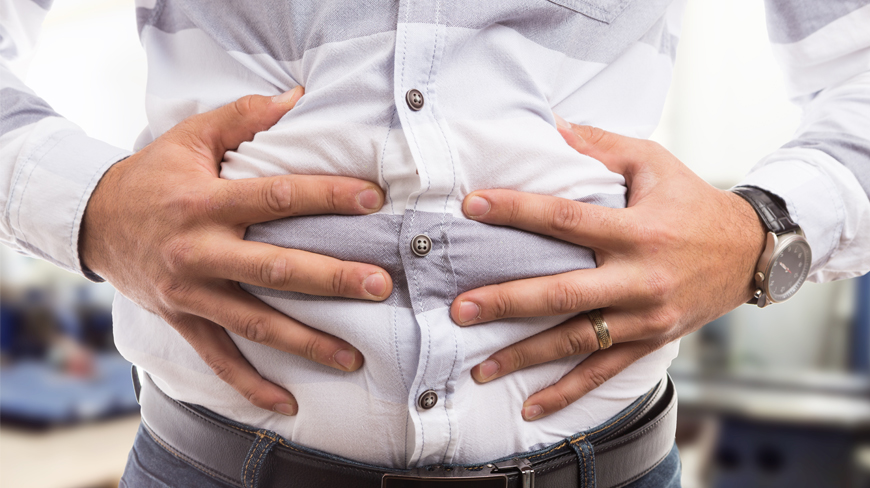We’re currently experiencing intermittent phone issues. Please feel free utilize the links on our website to communicate with us via our secure messaging platform, Klara. If you have an active Patient Portal account, you may log in to send a message to our office as well.
How to Get Rid of Bloating: 10 Ways

Bloating is a common and uncomfortable occurrence many people experience at some point in their lives. Factors contributing to bloating include overeating, indigestion, and other medical conditions. Here are 10 ways on how to get rid of bloating.
There are many strategies you can use to help alleviate bloating. Here are ten ways to eliminate bloating so you feel more comfortable and can return to doing what you love.
1. Slow Down While Eating
Eating too quickly is one of the most common causes of bloating. Eating too quickly causes you to swallow excess air with your food, which builds up in the stomach and intestines, leading to uncomfortable bloating. To avoid swallowing extra air while eating, sit down and eat your food slowly.
2. Monitor Your Portion Sizes
Large portion sizes cause the stomach to stretch, which can cause bloating and a full feeling in the abdomen. When eating, try to be mindful of the portion sizes you consume and try not to overeat.
3. Avoid Foods That Cause Gas
Some foods produce more gas in the intestinal tract than others, worsening gas and bloating. Common foods that can cause bloating and gas include beans, lentils, broccoli, cabbage, onions, garlic, carbonated beverages, and artificial sweeteners. If you struggle with bloating, consider reducing these foods in your diet.
4. Limit High-Fiber Foods
Fiber is essential for regulating blood sugar, keeping you full, and aiding digestion. However, high-fiber foods often produce gas in the digestive tract and can worsen bloat if you consume too much. It can also happen if you aren’t used to eating fiber and suddenly add it to your diet.
5. Stay Hydrated
Drinking plenty of water throughout the day helps prevent constipation, a common cause of bloating.
6. Avoid Food Sensitivities
For some people, bloating can be caused by specific food intolerances such as lactose or gluten intolerance. If you experience frequent bloating, consider keeping a food diary to determine if your bloating is related to consuming certain foods.
7. Take a Probiotic
A probiotic, or foods containing probiotics, such as yogurt or kefir, can help to reduce bloating by maintaining healthy gut bacteria and aiding digestion. To get rid of bloating, consider taking a daily probiotic supplement.
8. Get Regular Exercise
Physical activity helps to promote regular bowel movements, which can help to reduce bloating. To help eliminate bloating, take a walk after meals to promote digestion.
9. Avoid Swallowing Too Much Air
Chewing gum, eating too quickly, talking while eating, drinking through a straw, and drinking carbonated beverages can cause you to swallow excess air, which can build up in the stomach and cause bloating. Avoiding these activities can help to reduce bloating.
10. Massage Your Abdomen
Massaging the abdomen can help stimulate bowel movements and relieve bloating. Regular bowel movements can reduce bloating and increase comfort.
Talk to Your Doctor Today
Bloating can be uncomfortable and causes distress, but it is usually temporary. In most cases, bloating can be easily managed with lifestyle and dietary changes, but if your bloating becomes persistent or bothersome, schedule an appointment with a gastroenterologist to learn more about what could be causing your symptoms.
Get rid of bloating for good by getting a doctor’s advice to address the underlying cause – schedule an appointment today!

